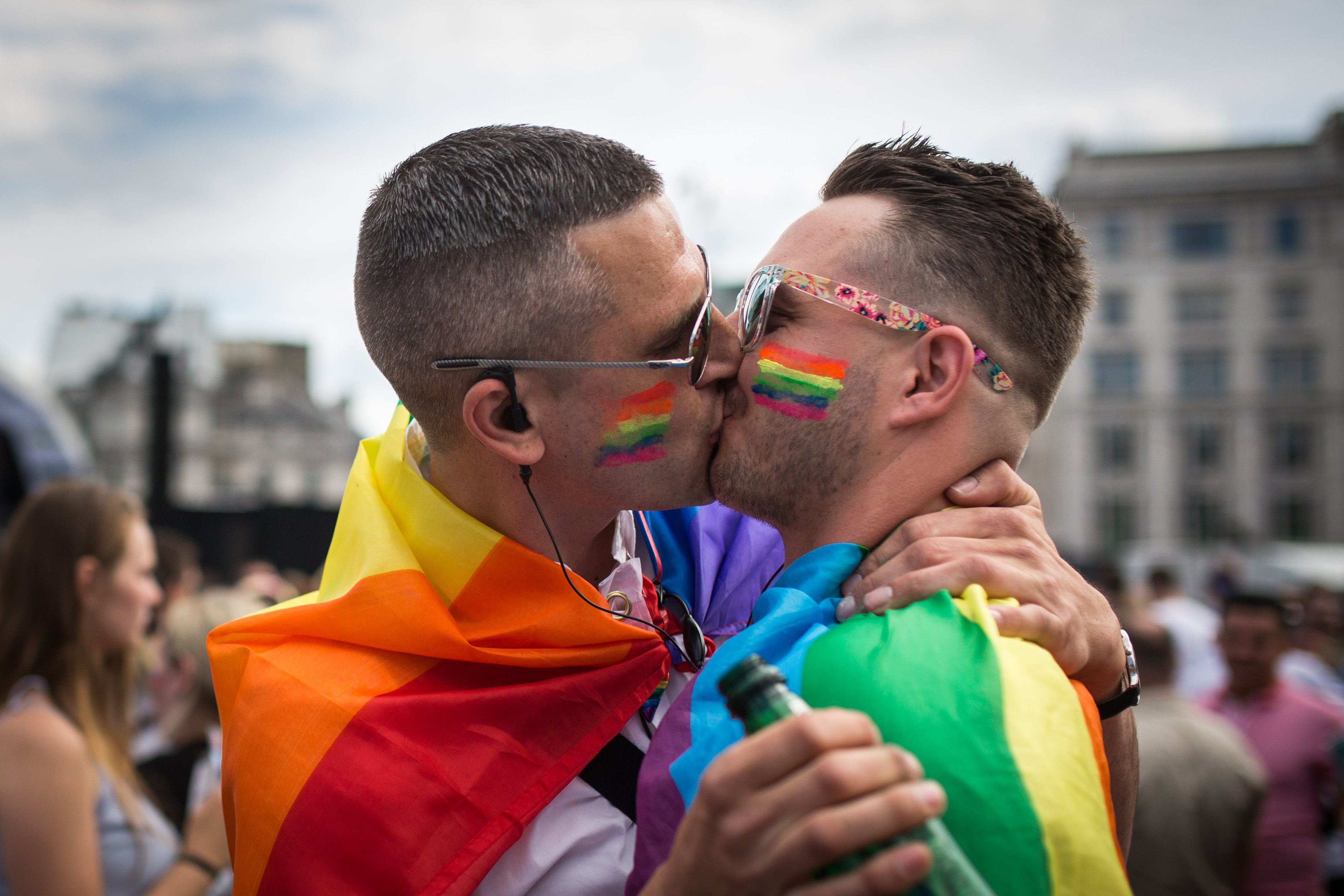Music, you know, has this incredible way of speaking to our very souls. It tells stories, expresses feelings, and truly connects people across all sorts of backgrounds. For so long, the powerful voices of gay male singers have been a vital part of this rich tapestry, adding layers of meaning and depth that resonate with so many listeners. Their artistry, sometimes, has not only entertained but also helped shape our culture in profound ways, reflecting personal truths and broader societal shifts.
When we talk about someone being "gay," we're really talking about a person who feels sexual or romantic attraction to others of their own sex or gender, which is a key part of their identity. It's a sexual orientation, just like being attracted to the opposite sex. The word "gay," in fact, once meant something quite different, like being carefree or cheerful, but it has definitely evolved to primarily describe a homosexual person.
This article aims to explore the deep impact these remarkable artists have made on the music scene, considering their unique contributions, the hurdles they've often faced, and the triumphs they've celebrated. We'll look at how their presence has enriched the world of sound, and, you know, how their authentic voices have helped change perceptions, truly.
Table of Contents
- Voices of Authenticity: Defining Gay Identity in Music
- A Legacy of Sound: The Impact of Gay Male Singers
- Facing the Music: Challenges and Triumphs
- Frequently Asked Questions About Gay Male Singers
- Looking Ahead: The Future of Gay Voices in Music
Voices of Authenticity: Defining Gay Identity in Music
Sexual orientation, as a matter of fact, really refers to an enduring pattern of emotional, romantic, or even sexual attractions to people. For gay individuals, this means a connection to those of their own sex. This attraction forms a central part of someone's identity, shaping how they see themselves and, you know, how they relate to the world around them.
The term "gay" itself has quite a journey, historically. It originally conveyed a sense of being carefree, cheerful, or bright and showy. Over time, however, its primary meaning shifted. Today, it generally refers to a homosexual person or the trait of being homosexual. This shift in meaning, you might say, reflects changing societal views and language use.
Homosexuality, then, is simply the attraction between people who are the same sex. It's a sexual orientation, just like any other, and it comes from the Greek word "homos," which means "the same." It's not a choice or a lifestyle; it's a fundamental aspect of who someone is, really.
A Legacy of Sound: The Impact of Gay Male Singers
Gay male singers have, in a way, done more than just create catchy tunes. They have often used their platforms to express deep personal truths and, in doing so, have truly broadened the scope of what popular music can discuss. Their contributions have significantly enriched the music world, adding diverse perspectives and sounds that might otherwise be missing.
Breaking Barriers and Building Bridges
Many gay male singers have, you know, courageously stepped forward, opening doors for countless others who might have felt unseen or unheard. By being open about their identities, they've helped to normalize gay experiences within mainstream culture. This visibility, in fact, has often sparked important conversations and helped chip away at old prejudices.
Their presence in the spotlight has, quite simply, challenged traditional ideas about masculinity and artistry. They've shown that talent and authenticity know no boundaries of sexual orientation. This, in turn, has helped build bridges of understanding between different communities, making music a more inclusive space for everyone, really.
Crafting Unique Narratives Through Song
The music created by gay male singers often carries a distinctive emotional weight. Their personal experiences, including their attractions to people of their own sex, frequently weave into their lyrics and melodies. This, you know, allows for the expression of love, longing, and joy from a perspective that might be different from what listeners are used to.
These artists, you see, often explore themes of self-discovery, acceptance, and resilience in their songs. Their music can become a comforting mirror for listeners who share similar feelings or experiences. It's a way of saying, "You are not alone," which is, in fact, incredibly powerful for many.
From Underground to Mainstream: Shifting Perceptions
For a long time, gay artists, more or less, often had to keep parts of their lives hidden or existed in more underground music scenes. However, over recent decades, there's been a noticeable shift towards greater openness and acceptance. This change has allowed more gay male singers to share their full selves with the world.
This increased visibility, you might say, has been instrumental in challenging outdated stereotypes and promoting a more nuanced understanding of gay identity. When artists are seen and celebrated for who they are, it naturally helps to change public perceptions, making society a little more accepting for everyone, really.
Facing the Music: Challenges and Triumphs
Despite the progress, gay male singers, like many LGBTQ+ individuals, have historically faced and sometimes still encounter considerable challenges. Their journey to widespread acceptance has, in fact, been marked by both significant hurdles and inspiring victories.
Overcoming Prejudice and Stigma
It's a stark reality that some gay people, even today, worry about losing their jobs or facing hostility if their sexual orientation becomes known. This fear, you know, can extend to artists, potentially impacting their careers and personal well-being. The threat of discrimination has been a persistent shadow for many.
There's a real need for support and resources to help combat this stigma. Information about the meaning of "gay," along with support for mental health issues and addressing bullying, is incredibly important. Helpful articles and therapy options, for instance, are vital for those dealing with discrimination and its effects.
The broader societal context also matters, too. For instance, courts have, in the past, considered a parent's sexual orientation when making custody decisions. While views are changing, these historical considerations highlight the systemic challenges gay individuals have faced in various aspects of life, really.
The Power of Coming Out
A truly encouraging trend researchers have noted is the increasing number of young people, particularly gay and bisexual Generation Z teenage boys, who report being open with their parents. This uptick in "coming out" shows a significant shift towards greater openness and acceptance within families and society at large.
When gay male singers choose to live openly and authentically, it sends a powerful message. Their decision to be themselves, you know, inspires countless fans and aspiring artists to embrace their own identities. This brave act creates a ripple effect, making it easier for others to feel comfortable in their own skin.
Finding Community and Support
For many gay male singers, and indeed for all LGBTQ+ individuals, finding supportive communities has been absolutely crucial. Places like gay bars, for example, have long served as vital spaces for connection and expression. Websites offering reviews and photos of such places, like travelgay.com, show how important these hubs are.
These communities, you see, provide a sense of belonging and a network of support that can be invaluable, especially when facing societal pressures. From beloved dives to cocktail dens, these spaces offer something for every interest, fostering a sense of shared identity and strength. This kind of support system, in fact, helps artists thrive. Learn more about on our site, and link to this page for more details.
Frequently Asked Questions About Gay Male Singers
Who are some widely recognized gay male singers?
There are, in fact, many highly regarded gay male singers who have left a lasting mark on music. These artists span various genres and generations, from legendary figures who paved the way to contemporary stars shaping today's sound. Their contributions, you know, truly showcase the breadth of talent within the community.
How have gay male singers influenced the music world?
Gay male singers have, more or less, influenced music by bringing unique perspectives and emotional depth to their art. They've often pushed boundaries, both musically and socially, by expressing their authentic selves and experiences in their songs. This has helped to broaden the themes explored in popular music and, you know, challenge societal norms.
What kind of challenges might gay artists encounter?
Gay artists, sadly, have sometimes faced discrimination, stigma, and hostility in their careers. Concerns about job security or public perception due to their sexual orientation have been real. However, the increasing openness in society and the support from communities are, you know, helping to lessen these challenges over time.
Looking Ahead: The Future of Gay Voices in Music
The journey for gay male singers, like for all LGBTQ+ individuals, is an ongoing one. While significant strides have been made, particularly in recent years, there's always more work to be done in fostering true inclusion and acceptance. The voices of new generations of artists, in fact, continue to emerge, bringing fresh perspectives and sounds to the global stage.
As of late 2023, the landscape continues to evolve, with more artists feeling empowered to share their full identities. This continuous evolution means that the impact of gay male singers will only grow, adding even more richness and diversity to the world of music. Their stories, you know, are far from over.
The contributions of gay male singers are, quite simply, an irreplaceable part of our musical heritage. Their courage, creativity, and authenticity have not only shaped the songs we love but also, in a way, helped to shape our society. By sharing their truths, they have opened hearts and minds, proving that true artistry flourishes when individuals are free to be themselves. We should, you know, continue to celebrate these incredible artists and the powerful sounds they bring to our lives.



